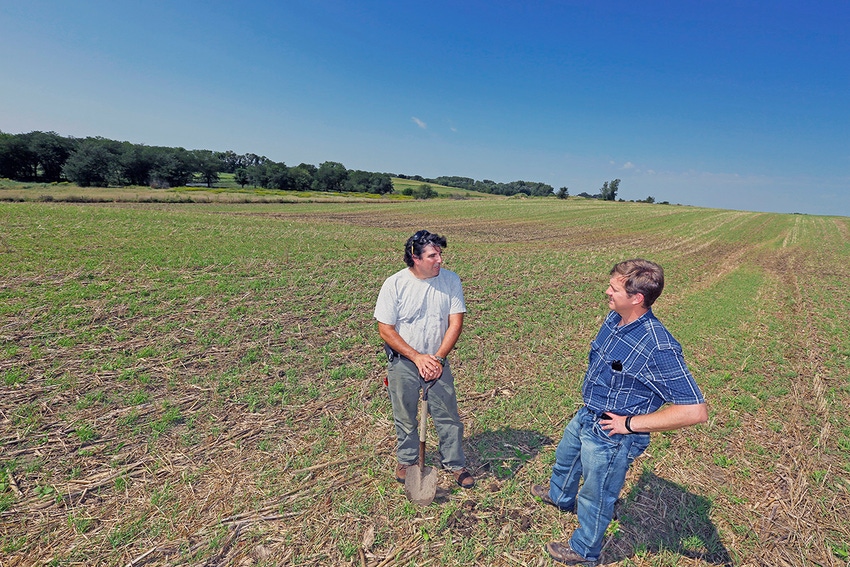January 5, 2016

Finding the right partner is key to mutual satisfaction in any partnership, be it business or personal. As crop producers come under increasing pressure over water quality and other environmental issues, conservation and environmental organizations can be valuable partners. Farmers are under fire for surface and groundwater degradation and soil loss, and so are downstream buyers of farm products.
Sustainable product desires
"Branded, consumer package goods companies have set or are contemplating setting goals for how they source ingredients in a sustainable manner, and that can impact farmers in positive or negative ways," explains Sean McMahon, executive director, Iowa Ag Water Alliance (IAWA). IAWA itself is an alliance of the Iowa Soybean Association, Iowa Corn and Iowa Pork Producers and is focused on improving the state's water quality. "A number of environmental and conservation groups enjoy a strong relationship and influence over these companies. It can be constructive for agricultural groups to have strong working relationships with them."
IAWA has formed several such relationships and is developing more. McMahon emphasizes that the relationships need to be science based and data driven. Partners must also be committed to working directly with producers through a voluntary conservation approach that takes profitability into account.
"When sustainability and goals are driven by data and science and not emotion and rhetoric, it is better for everyone," says McMahon.
National Corn Growers Association (NCGA) CEO Chris Novak is quick to admit that the viewpoint and agendas of some groups are too far removed to identify a middle ground. However, he adds that it is important to build bridges with non-traditional partners. He points to Field to Market and the Soil Health Partnership (SHP) as good examples of bridges NCGA has built with environmental groups. He notes that both The Nature Conservancy and the Environmental Defense Fund are science advisors and active participants in SHP.
"They seem to be committed first to environmental improvements," says Novak. "They recognize the value of voluntary action by farmers and want to do what they can to promote conservation."
Take responsibility
Novak notes that the stakes are high and partnering is vital. "In agriculture, we need to take responsibility for defining our own solutions when we know there are improvements that can be made in water quality and soil loss," says Novak. If we wait for others in government or downstream industries to dictate it, we lose our ability to determine our future."
About the Author(s)
You May Also Like




